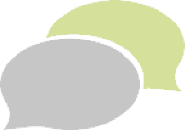Blog
I’m continuously researching better ways to help clients, enhancing my techniques and developing thinking within the psychotherapy community.
You’ll find my latest articles and thoughts below…

Characteristics of Depression – An article series.
There are several types of depression, each with distinct characteristics. Let’s explore them:
Panic Anxiety Disorders and Health Anxiety PART TWO
Crossover Symptoms of Anxieties. In part one we looked at the DMS-5 Guidelines for recognising the differences between Panic Anxiety Disorder and Panic Disorder. In Part Two, we look at people’s experiences from panic attacks of both types and question if there is a link to health anxiety disorder, based…Read More
Panic Anxiety Disorder & Panic Disorder Part 1
DSM-5 Definition of panic attacks or panic anxiety disorder. The DSM-5 Diagnostics, has simplified the approach to panic anxiety disorder into two very clear differences: expected panic attacks and unexpected panic attacks. Expected panic attacks are associated with a specific fear like that of flying and any type of phobia…Read More
Health Anxiety Disorder. Why I’m always unwell, Why?
Venture towards anybody undertaking some sort of activity or job at a desk with a computer and notice the telltale signs of health anxiety disorder (HAD). For one thing you’ll notice everything on the desk is reasonably tidy and easy to find, there’s a distinct lack of coffee or tea…Read More
The prison of Social Anxiety Disorder and it’s difficulties in life!!!
Social anxiety disorder (SAD) has a different characteristic, hence its own label above. The difference with this type of anxiety is that we internalise our world and our place in it. When we internalise our anxiety, we view the cause of concern as being us ourselves, that we are in…Read More
How does healthy anxiety become unhealthy? How does it manifest in the mind and body?
General Anxiety Disorder & The importance of GABA nutrition? If a person suffers with an inflamed sympathetic symptom (over-active radar) for six months or more, it is diagnosed as General Anxiety Disorder (GAD). This is because healthy anxiety has become unhealthy and requires intervention treatment. Anxiety can be triggered by…Read More
What is Anxiety? and what purpose does it serve in our body as well as our minds? How and where does it occur?
Anxiety is a protective process. It allows us to experience protection from what is unsafe to our well-being, such as, intense heat or cold. In pitch darkness it warns us to not put one foot in front of the other as we can’t see where we’re going. It gives us…Read More
Agoraphobia – Causes and development
what is Agoraphobia? There are dozens of phobias within our society. Some phobias are deemed ‘ok’ as they are of an inbuilt protection mechanism. Most of us would not seek the company of rats or snakes, as they can be harmful, if not lethal. With other phobias we can find a solution…Read More
Thoughts stopping sleep – Causes and Solutions
Many of us have a problem switching off from thoughts late in the evening or at bedtime. As an example we worry and ponder about our work situations and work load, personal relationships and families and our thought processes go round and round in circles, achieving nothing but a state…Read More
Analysis of Dreams – A deeper look
The following Dreams Analysis was emailed in by TG from Leeds. Context TG: Last night’s dream was a strange one, I was in an old market where people I have known in the past are all around selling sweets on different stalls. I was with someone I’m not in contact…Read More
The Waking and Dream states
When trying to sleep, we fluctuate between the waking and dream states. This blog post explores these states and provides some insight into them. The waking and dream states – A comparison In our waking state we are fully conscious, using the conscious mind to make decisions where we employ…Read More
Rationalising dreams – A dream analysis
In this post we explore and discuss an individuals unusual dream. Rationalising dreams means we will break down the dream into components to gain a understanding of why this dream has occured. In this dream the dreamer is driving in the country side to visit a friend and sees a…Read More
Negatives of Excessive online Gaming
When we overdo online gaming, there are repercussions in our thought and behaviour patterns. This can end up effecting us and those we care about and live with. Here are some of the self-defeating behaviour symptoms’ that indicate your gaming habits has become unhealthy. Both for your mind and body…Read More
Gaming and Gambling in Lock-down
Research is telling us that gaming and gambling in lock-down dramatically increased through the pandemic during 2020/2021. Whilst that may be obvious to most of us, this trend appeared to be across all age groups. Many people enjoyed playing easy relaxing games to pass the time. The lockdown gaming Spike…Read More
Gaming and Gambling today
What are the differences and similarities: Gambling is as old as the start of civilisation and is a wager where anything of use or desire can be won. It evolved into casino’s, slots and racing amongst other things. These days it has a huge online presence. Gaming evolved with competitions…Read More
Where do dreams come from?
Dreams Part 2 Where do our dreams come from? It’s an interesting question. Let’s start with some neuroscience. In a part of our brain called the Limbic System, we have an area which contains all our long term memories, called the “hippocampus”. After all we need a storage system for…Read More
Dreams, The Labyrinth of the Unconscious Realm
Dreams part 1 Our dreams come to us from the unconscious part of the mind and speak to us of our hidden fears and desires Many therapists will tell you when working with clients, one of the most common statements made at the start of many a session is…Read More
Finding the right therapist for you.
In general, well-established and legitimately practiced brands of therapy (such as cognitive-behavioral, psychodynamic, dialectal-behavioral, or interpersonal therapies) are about equally effective for many problems and many people. However, as an individual, you may feel more comfortable looking for a therapist who practices one type of therapy versus another. Some therapists…Read More
Hypnotherapy for Insomnia
The way insomnia works. People with insomnia often believe that they are “Insomniacs”; i.e. genetically predisposed to insomnia. Nothing can be further from the truth. Every living organism has a dormant period, so sleep is natural, therefore insomnia is unnatural. In general insomnia is caused by an underlying anxiety which…Read More
Useful Tips Before Entering Therapy
Afraid of opening up or sharing your thoughts in therapy? Here are a few things you can do: 1. Talk to your therapist about the problem. This may sound silly if the actual problem is talking to your therapist about your problems in the first place. However, one of the…Read More

